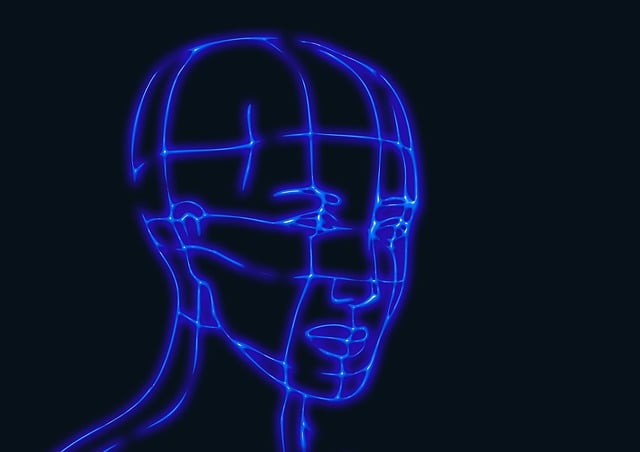Muscle soreness after workouts, or DOMS, is a natural response to physical stress caused by micro-tears in muscle fibers. While mild to moderate soreness can be managed with rest and hydration, severe pain might indicate an underlying issue. Kratom, a herbal supplement with analgesic and stimulant properties, is popular for chronic pain and ADHD symptoms, including DOMS. However, its use should be approached with caution, especially for athletes, and consultation with healthcare professionals is advised. Kratom interacts with opioid receptors in the brain to reduce muscle soreness and improve focus during exercise, enhancing recovery outcomes. Personalized workout routines tailored to individual needs and preferences provide effective pain relief and promote overall well-being, making workouts a beneficial part of self-care for ADHD management.
Experience chronic muscle soreness? Customized workout plans offer a targeted approach for relief. This comprehensive guide delves into the science behind muscle soreness, exploring how factors like intense exercise and daily activities trigger discomfort. We also uncover the potential benefits of kratom in managing ADHD symptoms while enhancing post-workout recovery. Additionally, discover how personalized routines tailored to your needs can effectively alleviate pain and accelerate your journey to wellness.
- Understanding Muscle Soreness and Its Causes
- The Role of Kratom in Managing ADHD and Enhancing Workout Recovery
- Creating Personalized Workout Routines for Effective Pain Alleviation
Understanding Muscle Soreness and Its Causes
Muscle soreness is a common post-workout experience, often described as delayed onset muscle soreness (DOMS), typically peaking 24–72 hours after exercise. It’s your body’s way of signaling that it’s adapting and building strength in response to physical stress. This discomfort arises from tiny tears in muscle fibers during intense activity, leading to inflammation and increased sensitivity. While mild to moderate soreness is normal and can be managed with rest and hydration, severe or prolonged muscle pain might indicate an underlying issue, especially for those managing conditions like ADHD who may turn to alternative remedies like kratom for relief.
Kratom, known for its potential analgesic and stimulant properties, has gained attention as a natural remedy for various ailments, including chronic pain and ADHD symptoms. Some users report that kratom’s soothing effects can help alleviate muscle soreness by potentially reducing inflammation and blocking pain signals to the brain. However, it’s crucial to approach this herbal supplement with caution and consult healthcare professionals before integrating it into recovery routines, especially for those engaging in regular exercise to ensure safety and efficacy.
The Role of Kratom in Managing ADHD and Enhancing Workout Recovery
Kratom, a natural herb with a growing popularity in the wellness space, has been found to play a significant role in managing symptoms of ADHD (Attention Deficit Hyperactivity Disorder). Its unique properties make it an intriguing alternative for those seeking relief from the constant mental restlessness and hyperfocus often associated with ADHD. The primary active compounds in kratom, known as mitragynine and 7-hydroxymitragynine, interact with opioid receptors in the brain, potentially offering a calming effect without the sedative side effects of traditional medications.
When combined with a customized workout plan designed to alleviate muscle soreness, kratom can further enhance recovery. The herb’s anti-inflammatory properties may help reduce post-workout muscle aches and pains, allowing individuals to stick to their exercise routines consistently. Moreover, kratom’s ability to improve focus and concentration during workouts could lead to more intense and effective sessions, ultimately contributing to better overall fitness and a positive feedback loop for continued motivation.
Creating Personalized Workout Routines for Effective Pain Alleviation
Creating personalized workout routines is a powerful tool in managing and alleviating muscle soreness, especially for individuals dealing with chronic conditions like ADHD. In today’s world, where kratom for ADHD is often explored as an alternative treatment, physical activity plays a complementary role in overall well-being. Customized exercise plans consider an individual’s unique needs, preferences, and limitations, ensuring an effective yet gentle approach to pain relief. This tailored method allows for the design of specific workouts that target not just the muscles but also the mind, offering a holistic solution to manage symptoms associated with ADHD and muscle discomfort.
By incorporating targeted exercises, one can address specific areas of soreness while promoting blood flow and releasing endorphins, natural painkillers. Such routines can be as diverse as the individuals themselves, ranging from gentle stretching and yoga to high-intensity interval training (HIIT), all designed to suit individual tolerances and preferences. This personalized approach ensures that the workout not only provides relief but also becomes an enjoyable part of one’s self-care routine, fostering a positive relationship with physical activity.
In conclusion, managing muscle soreness effectively involves a deep understanding of its causes and tailored strategies. While kratom for ADHD offers potential benefits, personalized workout routines prove to be a game-changer in pain alleviation. By combining knowledge with individualized approaches, one can navigate the post-workout recovery process seamlessly. These methods not only enhance overall fitness but also ensure that individuals can stay active and comfortable, enjoying the fruits of their labor without lingering discomfort.














